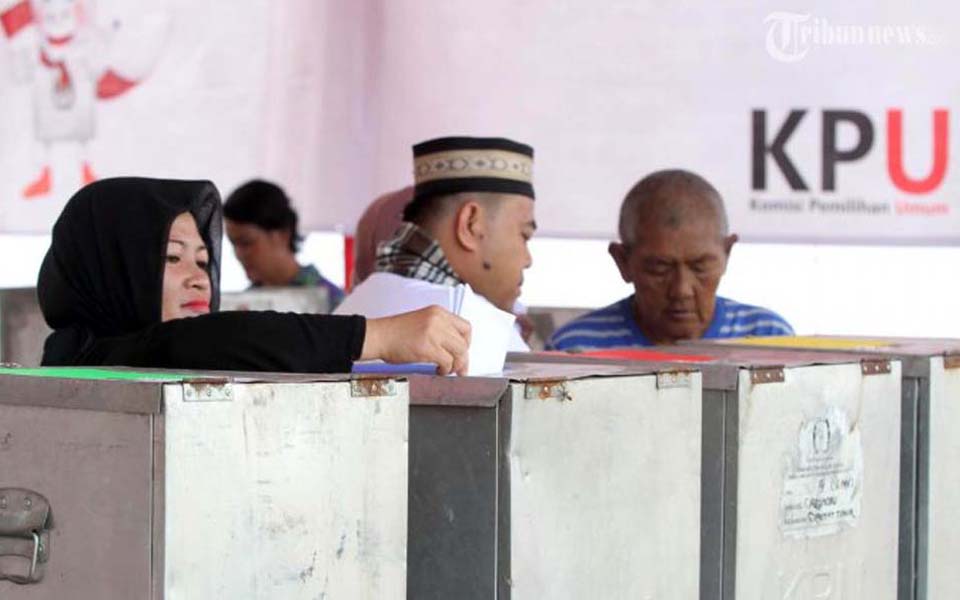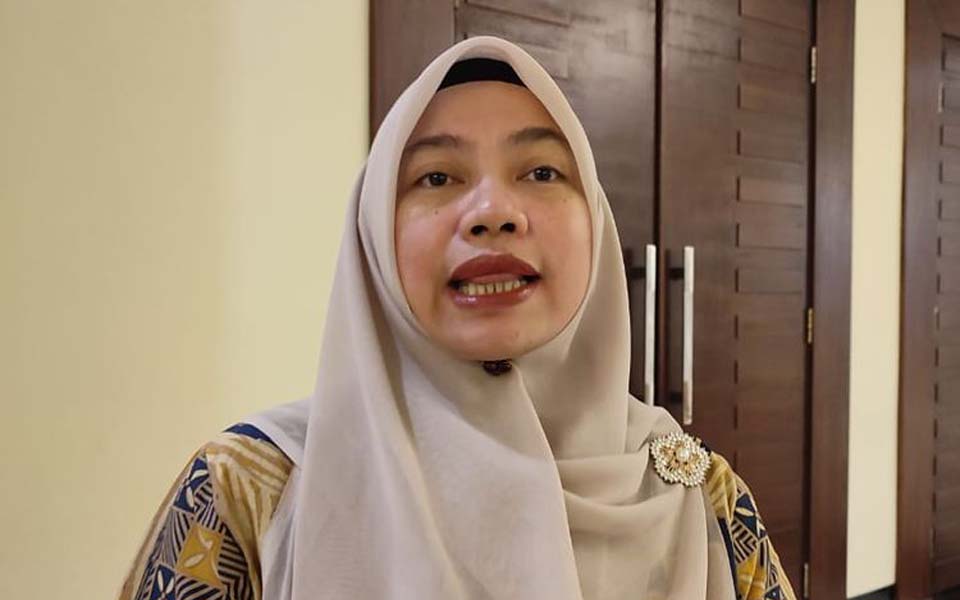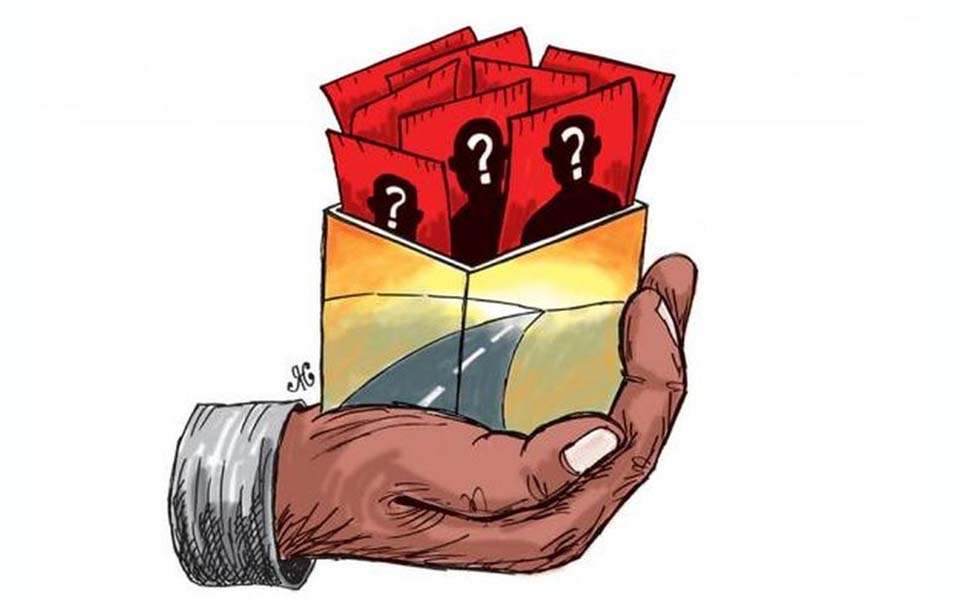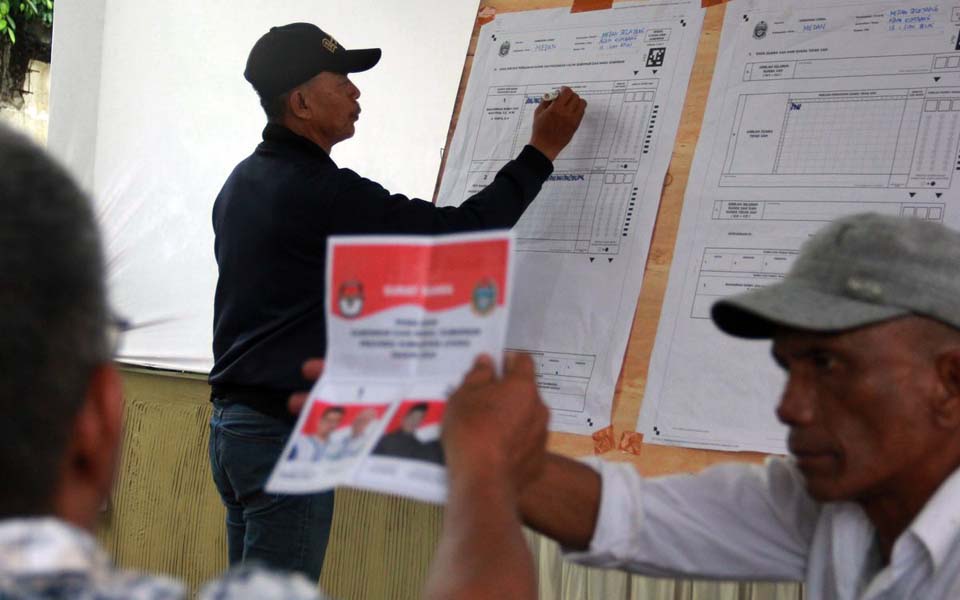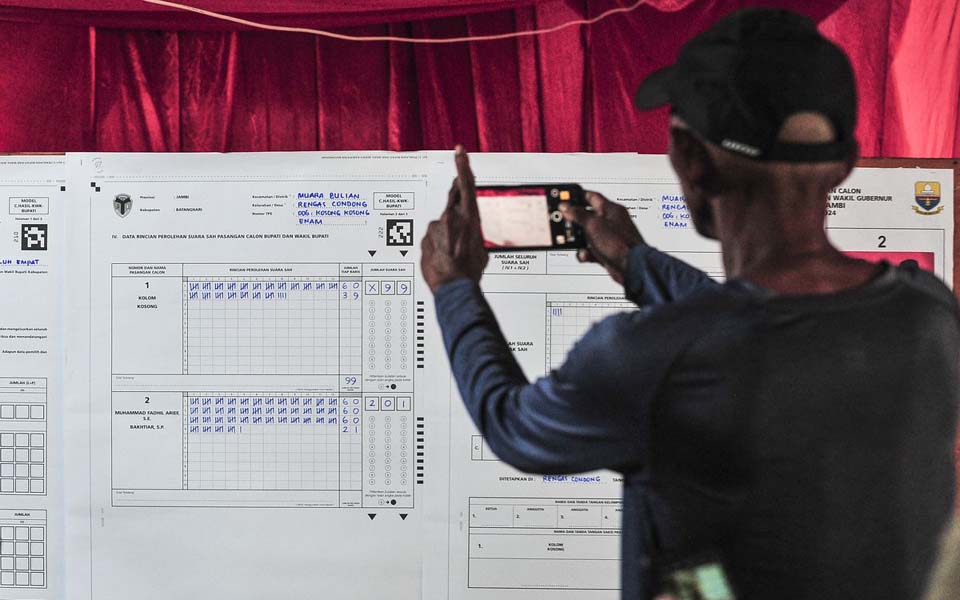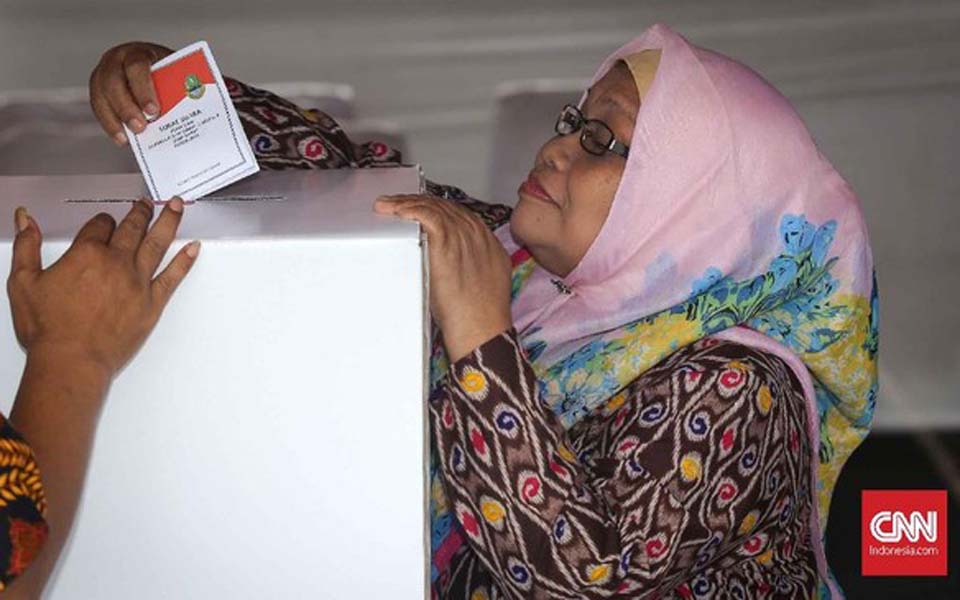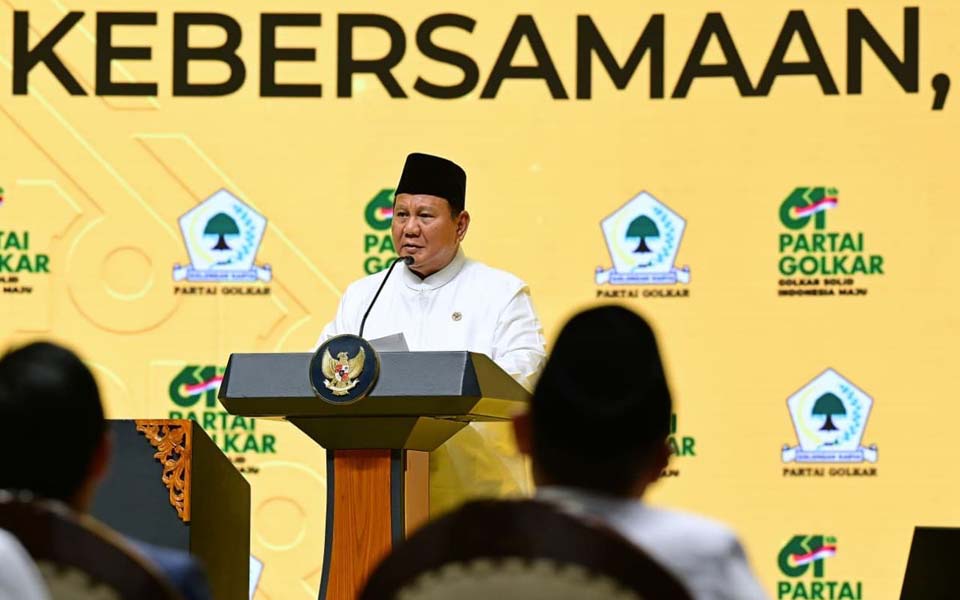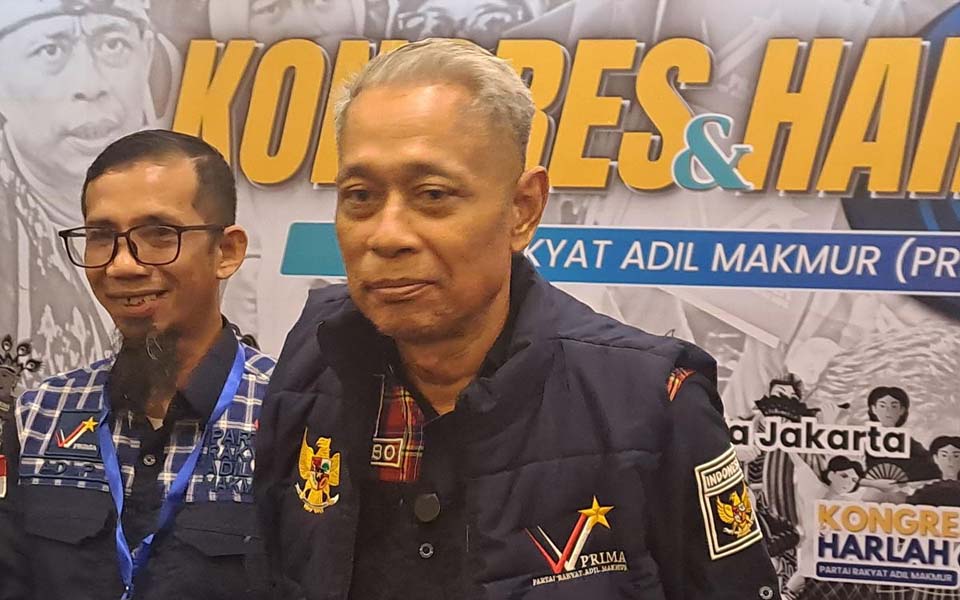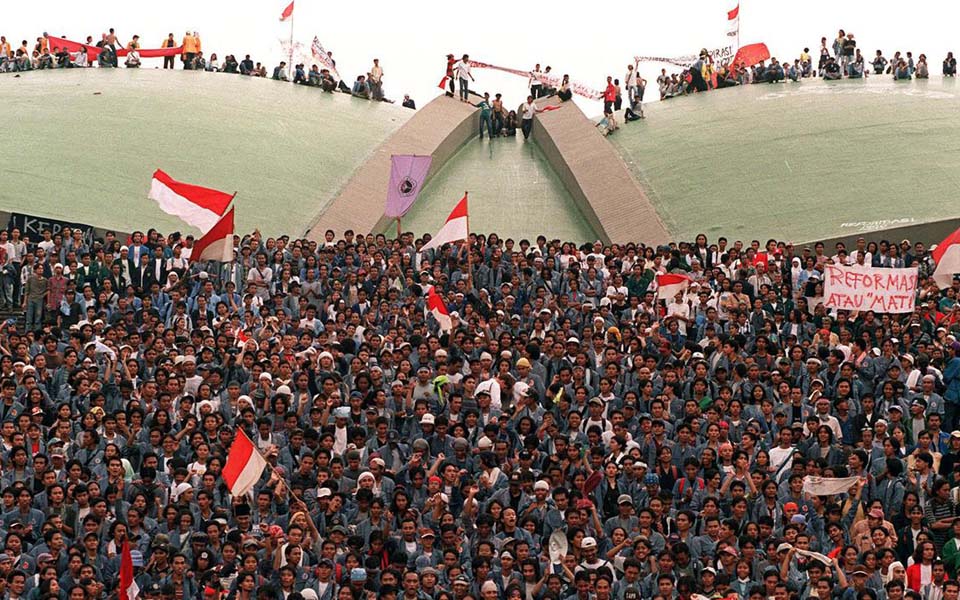J. Osdar – Indonesian journalists roared with laughter when they witnessed the general elections or great election in the Malaysian state of Sabah in 1985. The total number of voters was only 300,000 out of a population of 1.2 million. But more than 30 political parties had registered to contest the elections.
Only a few of the larger parties appeared to be serious contenders, the United Sabah National Organization (USNO) and Victorious, a coalition of parties then power in the National Front coalition. Two parties that have consistently alternated in governing Sabah.
The remainder were the insignificant parties that were the cause of the laughter by political analysts in the country. The majority of these marginal parties had their central offices in a series of dilapidated houses and their names were also amusing: Shears, Sickle, Tractor and so on.
At that time the political and economic situation in Indonesia was relatively stable as only three political parties were allowed to contest elections. Two of these had their central offices in the elite area of Menteng in Central Jakarta, while the Golkar Party’s central offices in the West Jakarta area of Slipi were pretty good too. The situation in Indonesia did indeed cause the journalists to feel qualified to laugh about Sabah.
On senior journalist from Jakarta at the time said that situation during the 1985 elections in Sabah resembled the elections in Indonesia in 1955, saying that many of the parties at the time were established based on little more than a willingness to give it a shot, to take a risk or had just been haphazardly thrown together.
The outcome of the Sabah elections however, surprised many when one of these marginal parties, the Sabah United Party (BPS), led by Datuk Pairin Kitingan, which had only been established only three months earlier was victorious. Although in the end it was destroyed, the party stepped forward, won and took power..
The laughter of those journalists in Sabah in 1985 would erupt again if they were to visit the offices of the new political parties that have registered with the Department of Justice and Human Rights to contest the 2009 Indonesian general elections.
Twenty-seven parties were included in the list of parties handed over to the House of Representatives Commission III on September 23. But finding a list like this at the Department of Justice and Human Rights on Jl. Rasuna Said in the Kuningan area of South Jakarta was not a simple task, even though officials at the office claimed it was “easy”.
It took at least 12 hours of waiting to get and answer as to whether or not it was possible to see the list. Waiting in these offices was also an unpleasant story in itself, especially if you wanted to use the toilet. The toilets for ministers and Echelon I-IV officials are locked and the others, without locks, were disgusting.
It turned out that the list included parties that had submitted founding documents but not to establish a party. There were also names registered only showing the structure of various party directors. The party’s addresses were also unclear. When visited, in one case it turned out that the official address was a furniture shop. There were also party offices that shared premises with a public telecommunications centre or wartel.
The wartels
Try going to the central office of the Satrio Piningit Party on Jl. Raya Warung Buncit in Jakarta. The party’s offices are located at a small wartel that is staffed during the day by a teenage woman called Lilis. The party is listed as number 17 at the Department of Justice and Human Rights. But there is no party signboard in front of the office and along side it is a massage parlor and a signboard with the name of a shop selling men’s health tonics.
In answer to journalists’ questions, the party’s general secretary Professor Doctor Haryono MBA said, “It’s just the name, the Piningit Party, so it’s not easy to find its location. Piningit, means still held back or hidden”.
“People can laugh about the party if they want to. It’s people’s right to laugh. We want to take part in enlivening the festival of democracy”, said the 57-year-old man who claims he is a graduate of a doctorate program at the International University of Missouri in the United States.
Haryono says that the party’s funding comes from contributions by its members. “We mutually assist each other. There are also those that provide more for us”, he said. Haryono’s claims are the same as those expressed by the heads of the other political parties when asked about finances.
Then, in Cempaka Putih, Central Jakarta, there is the headquarters of the My Republic Party (Partai Republikku). When journalists arrived on the afternoon of Monday November 6, there was only one teenage woman in the open room. She handed out a leaflet containing the profile of the party’s general chairperson and general secretary. It began with a profile of the My Republic Party general chairperson in which was written, “Armed Forces Rear Admiral Sasongko Sos MM. Born Kebumen 1950 grew up in Surabaya, height 178 cm, weight 90 kg. Married the apple of his eye, Norma Maduratni...”.
Then, the profile of the secretary general Dr Tony P Tambunan SE MBA. “Graduated with a doctorate in economics from the American University 2001, height 178 cm, weight 89 kg, born Medan he... married Syupyati Hasan, born Betawi, Jakarta”.
On a house at the end of Jl. Perdatam Raya in South Jakarta, is the sign of a company. This is the address of the New Order Party (Partai Orde Baru), which is registered as number 16 and led by Dr Ainal Khaik Hutapea. There were only three people at the office when visited on the afternoon of Wednesday November 8. Two officials and the house security guard. “The directors aren’t here”, said one of the three people at the office.
Parking area
There is also the People’s Independence Party (Partai Kemerdekaan Rakyat) led by Alma Shepart Supit. Its offices are registered with the Department of Justice and Human Rights as the Gracia Tower on Jl. HR Rasuna Said, Jakarta. When visited by journalists, the offices were actually underneath the building’s parking area. “The party isn’t here any more “, said a security guard on Monday November 6. It turned out that the party had moved its offices to the Jembatan Dua area in North Jakarta.
On the side of a main road in Pasar Minggu, South Jakarta, is the central office of the Star Crescent Party (Partai Bintang Bulan), which occupies a room in what looks like a house come shop. The rear section of the house serves as the party’s offices.
Not far away among a row of houses on Jl. Mampang Prapatan XII, is a banner of the Independent Peoples Party (Partai Rakyat Merdeka). When contacted by phone and asked why the party’s name is the same as the newspaper Rakyat Merdeka, one of its directors only laughed in response.
Then, in second place on the list of political parties at the Department of Justice and Human Rights, is the Indonesia Youth Awakening Party (Partai Indonesia Muda Bangkit). The address written on the list is Level 7 Supra Tower, Jl. Let. Gen. S Parman, Jakarta. Nyonya Lingga, the manager of the building said, “Oh, that’s the name of the corporation, but it moved two years ago”.
Out of these 27 parties, it is the Democratic Renewal Party (Partai Demokrasi Pembaruan, PDP) that has received most praise from officials at the Department of Justice and Human Rights. The party’s facilities are more than adequate and it has offices in every province and many regencies/cities.
The founders of the party say that the PDP was establish not as split off from the Indonesian Democratic Party of Struggle (PDI-P). They say the PDP is like a thousand motorboats that were made to confront the crisis of the PDI-P. According to the founders, there will be many PDI-P cadre and supporters that will be jumping ship and need a boat.
Not far from the Santa Church in Kebayoran Baru, South Jakarta, is the party of Sys NS who previously established the Democrat Party. He left the party to found a new “funky” party with many of its leaders artists or young people. The party was even launched at a youth centre, the Cilandak Town Square (Citos).
Papernas
Meanwhile, in an area where scavengers collects and recycle rubbish, amidst the clutter of dirty shacks and in the rows of slum housing lying between Jakarta’s skyscrapers, are the coordination posts of the Preparatory Committee of the National Liberation Party of Unity ((KP-Papernas).
The posts lie between the small hills of rubbish collected by scavengers in Kampung Guji Baru, Kebon Jeruk, Jl. Bojong Raya, Kelurahan Rawa Buaya (Cengkareng), Kampung Basmol (Kembangan sub-district), Jl. Jampe Raya (Koja political district, Tanjung Priok), Jl. Pedongkelan (Kayu Putih political district, Pulo Gadung) and the South Jakarta area of West Tebet.
On any one day at these coordination posts, it is possible to meet with Papernas leaders such as Dominggus Octavianus Tobu Kiik, Lukman Hakim, Zaenal Abidin, Iwan, Dwie Laksono, Ny Rasmiana, Ny Eni, Rendy, Marlo Sitompul, Jumisi, Igor and others.
Every day, morning to evening, they work with people needing help because of problems obtaining identity cards, difficulties getting direct cash assistance (BLT) that was promised by the government for the poor as compensation for fuel price hikes last year, trying get free medication (in accordance with government regulations) or affordable education, because they have been evicted from their homes, extortion and other such problems.
“We established the party not to just sit in the parliament or on the executive. The party and the general elections provide the momentum for us to consolidate and unite so that we have the strength to deal with the people’s grievances and their complaints have been ignored by the government or the big parties to this day”, said Zaenal Abidin, the chairperson of Papernas Jakarta who was chatting with a Mrs. Haryati.
The wife of a construction worker, Haryati is a young woman who almost died of hemorrhaging when giving birth and was unable to get treatment because she did not have any money. Thanks to assistance from the Papernas coordination post, Haryati was able to give birth to the baby in a hospital.
Most of the women who have become members of this party have stories like Haryati. And after joining Papernas, they gained the experience to then assist people suffering a similar fate as they.
Two children
In the South Sulawesi provincial capital of Makassar, one of the representative chairpersons of Papernas, Wahida once helped a housewife from Goa called Upi. A mother of two children Upi set herself on fire after being refused BLT. Wahida and her colleges took he to hospital immediately. After recovering, Upi jointed Papernas and through the party is now actively supporting people with similar problems.
“We formed the party to be there among the people whose aspirations and fortunes are not touched upon by the government and the big parties which have existed since the New Order period. We are always there [for them]...”, said Marlo Sitompul, the head of Papernas’ urban poor division.
People in Papernas enjoyed hearing the story about Sabah. But while is not the same as Indonesia, what happened in Sabah could happen anywhere. A marginalised party emerging the victor or a movement bringing down an established party. “It’s not an impossibility, the events of May 1998 could be upon us again if those who play in the big parties, parliament, the business world, the courts, military institutions, yes those very same people... The ones who always receive the big profiles in your newspapers [continue to ignore the people]”, said Sitompul.
[Translated by James Balowski.]





